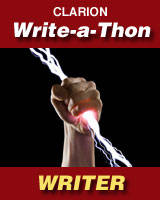One of my less creative titles. Why? All of my creative energy is expended elsewhere!
That's right. Some of my regular readers will have noticed I've not been posting much lately. Sorry guys and gals. I hope my guest posters have held your interest. I know I liked what they did, and I'll take this opportunity to say another big "Thank you."
I've been punching my way through the final draft of Paint the Raven Black, and I've learned so much, my brain has been set to explode. Not literally. That would be gross. But figuratively, it would make the average Tarantino movie look like Winne the Pooh.
I've decided I'd better come back to internet life. I'll even start marketing on Pinterest and Google + and all that stuff again. Far more importantly, I'll start giving updates on my progress. As I've said, I'm learning a tonne along the way. This novel is the one I'm learning to write novels with, if you see what I mean. I've written a novel before. Everybody starts with some horrible, messy novel before really attacking the craft. Seriously, every writer I've ever met, everybody I met on the MA or MFA, everybody. Mine was called The Nameless One, and it was a good idea, but a terrible book. It will become a good book one day, but only thanks to my having learned how to accomplish that by writing Paint the Raven Black.
As this is a blog about writing, I'll let you know what I learn as I go! If it turns out I'm correct about any of it, we'll all have benefited! If not, I'll try again!
Here are a couple of practical things I've learned:
1) Eagerness is your enemy.
Impatience has been the bane of my career. And this close to the polished draft of a book, it's a 200 pound gremlin ready to jump on my shoulder. I've written before about being willing to plunge back into the draft when it's beneficial, rather than simply necessary. But there's another thing I've learned. I'm constantly tempted to sit and finish--to just blitz my way through page after page. It's important in those moments to take stock, and that's easier said than done. Go for a walk, pet your cat, do some push ups. Whatever. Just leave the smegging keyboard. I promise, you'll do better for it.
2) Eagerness is your smegging enemy, so manage your time.
Most professional artists only do around 4 hours per day, and I've discovered the reason. Energy wanes, even when motivation doesn't, and with less energy, I get sloppy. It's not a matter of careless prose or anything like that. It's a matter of impatient plotting, getting exhilarated with how much I can get done. Robert Silverberg, when he was my age, did 9-12, broke for lunch, then did 1-3. I do 8-12, then 2-3. If I just turn off my internet explorer, don't check my emails or make any important phone calls for that short period, I get more done than 10 hours of everything at once. I also have more free time.
This is a very common time management method for artists and thinkers. Professional chess players do it, musicians do it, chefs do it, academics do it. The human brain can generally handle 4 hours on creative maximum per day. It's become something of a truism.
And here's the other side of that same coin: I have to make myself take time off. Take, for instance, right now. I'm at a point in the plot where it's very tempting to just re-use old material. What I've written previously is perfectly serviceable. It's actually pretty damn good, in my opinion, but I don't know exactly what I want to happen in the end. I know roughly. But at this point, in what Aristotle called the "denouement" (attainment into denouement--a way of looking at things I find helpful) I really need to know every detail, and I need to take stock of everything that's happened in the attainment. This is the part of the story in which nothing completely new should be introduced. New spins on old stuff is fine, but the reader is now seeking resolution, and the art of writing is all about reader psychology.
I might well use some of the old material. Smeg. I might well use all of it, word for word. But the point is I need a very clear image of why.
So, I kicked my impatience in the face. I felt like shooting from the hip, so I made myself sit down, calm down, and remember that only Texans do that. Once I find the target, I can aim properly.
The funny thing is, my fiance's mother is visiting. I want to show her how hard I work, but it's actually more productive for me to sit around playing Fallout 3 right now--a fact a 62 year old lady from Cumbria can't possibly understand. Yes, I'm feeling self-conscious. She can hear me typing this post right now, and she probably thinks I'm working on the novel. Thanks guys! Now where did they hide that "Luck Bobblehead"? (Fallout fans will understand.)























